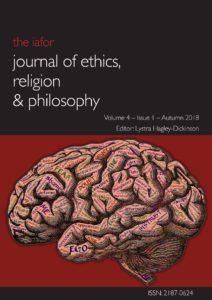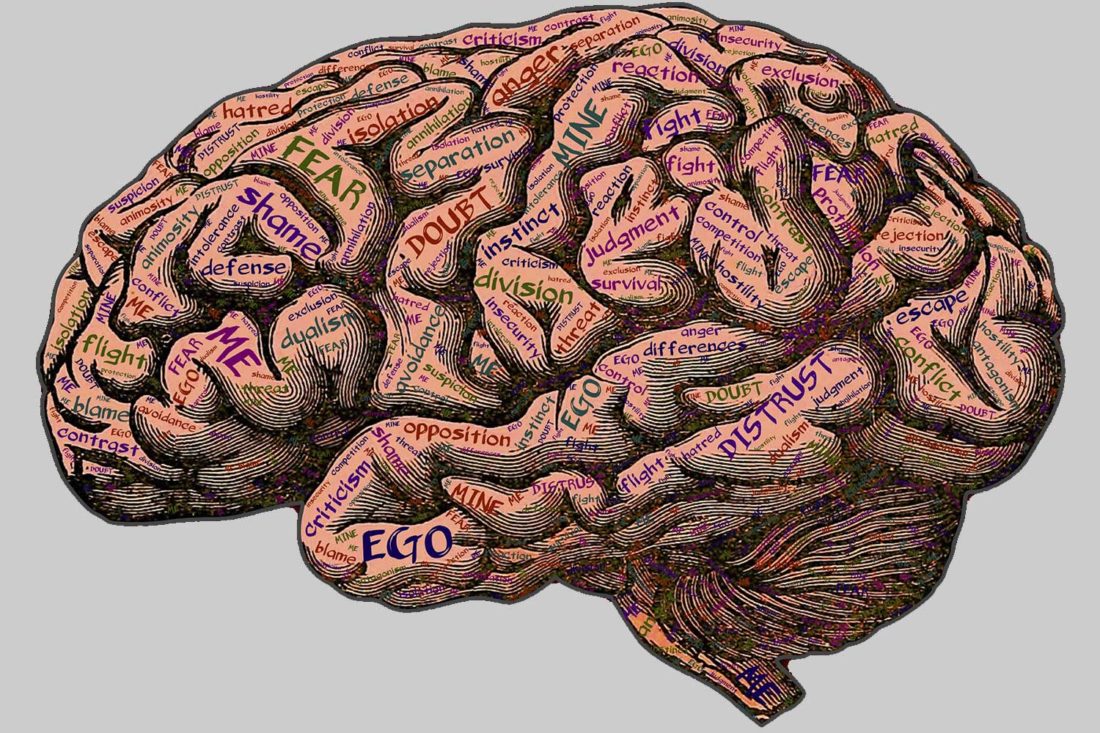IAFOR Journal of Ethics, Religion & Philosophy: Volume 4 – Issue 1
Editor: Lystra Hagley-Dickinson, Plymouth Marjon University, Plymouth, UK
Published: November 19, 2018
ISSN: 2187-0624
https://doi.org/10.22492/ijerp.4.1
Editor’s Introduction
This is the fifth issue of the IAFOR Journal of Ethics, Religion & Philosophy. There is recent news that the Journal is now listed by DOAJ (Directory of Open Access Journals), meaning that the publication is now widely accessible in university libraries. As this is just my second issue as editor, this news is very positive and I am committed to continue to improve the standing of the journal with the assistance of the IAFOR publishing team and my review editors (Professor Naira Danielyan; Alistair Ping; Dr. Nai-Ying Whang 雅珍 ).
There are three articles in the issue of which one is drawn from the Philippines, one from Turkey and one from Japan. They continue in the tradition of IAFOR to provide a platform for cross nationality and intersectional dispersal of knowledge. The issue emphasis is mainly upon the theological and the debate of religious issues as trans- and multidisciplinary in nature.
 In this issue we start at the proverbial beginning of creation of humanity, Vagras’s exploration of the concept of “interculturation”, which really speaks to man, and woman as originally unified as one rather than opposing entities based on sex and gender. He adapts the Philipino term Kabiyak ng Puso tale to discuss religion and the role of equality as a given to be acknowledged rather than to be pursued. As a realist feminist, I regard this as utopian in its premise as it has not been translated in the majority of women’s experiences. However, I would recommend it as a worthy read because it offers the pastoral approach as an opportunity to re-enact unity and not as one (woman or man) without the other.
In this issue we start at the proverbial beginning of creation of humanity, Vagras’s exploration of the concept of “interculturation”, which really speaks to man, and woman as originally unified as one rather than opposing entities based on sex and gender. He adapts the Philipino term Kabiyak ng Puso tale to discuss religion and the role of equality as a given to be acknowledged rather than to be pursued. As a realist feminist, I regard this as utopian in its premise as it has not been translated in the majority of women’s experiences. However, I would recommend it as a worthy read because it offers the pastoral approach as an opportunity to re-enact unity and not as one (woman or man) without the other.
Erden’s, work of a rethinking of post Kantian and the work of Fichte follows. He makes a plug for the return to the morality of Fichte which comes as the other extreme of attempting to explain the nature of “man’s morality”. Erden’s paper is a very traditional reflection on Fichte’s work. Danielyan in his review states that "the article has an excellent theoretical potential for modern readers. It provokes us to think about the philosophical heritage and its influence on the further historical development including nowadays. However, to make a correct conclusion it is absolutely necessary to compare Fichte’s idea of national upbringing and patriotism with human 'natural right' (Fichte, Foundations of Natural Right)". Yet his unique point is to consider a conversion of conservatism and liberality, a consideration that in itself is not radical but might be the beginnings for an explanation put towards the contemporary muddying of positions in the current Worlds’ politics.
Do Kien Trung continues to raise the questions of dialogue this time using Rorty’s account of Self and the language of Self. Unfortunately, he does not provide any conclusion. However, his work is included here as it renders the debate that is continuous in the field of religion ethics and law, which is the continuing dialogue and purpose of our journal.
About the Journal
The IAFOR Journal of Ethics, Religion & Philosophy offers the opportunity to continue to advance international scholarship in all themes and overlap of fundamental and applied ethics, religion and philosophy. It aims to encourage both the specific and broad ranging examination of these themes in all research ontological, epistemological and methodological approaches. The Journal welcomes submissions related to a multi-disciplinary approach to addressing moral, ethical, religious and philosophical challenges faced by the world’s researchers, academics, practitioners and professionals within the field. While specific topics that overlap the three themes of the journal are welcome, the journal will also provide a forum of dialogue between different disciplines of law, religion, and philosophy and how these individually or collectively inform or apply in ethical consideration.
We welcome submissions related to ethics, religion and philosophy from academics, practitioners and professionals within the field.
Best regards,
Dr Lystra Hagley-Dickinson
Editor
IAFOR Journal of Ethics, Religion & Philosophy

